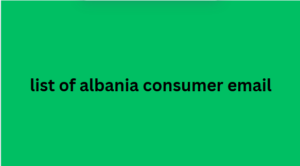Sending emails in a proper and professional manner is essential in the work environment. One of the most important aspects of a formal email is the way it is concluded. The closing of an email can leave a lasting impression on. The recipient and can influence. The business or professional relationship. In this article, we will explore best practices for ending an email formally, from using appropriate greetings to choosing the right closing phrases. We will learn how to communicate effectively and professionally when ending our emails.
Index
Importance of a proper farewell
A proper closing in a professional email is essential for several reasons. First, it shows respect towards the recipient and shows that we value their time and attention. Furthermore, it provides a clear and professional closing, which is important for maintaining a good image and establishing effective communication.
Formal greetings for different recipients
The greeting at the end of an email is part of a formal farewell. Choosing the right greeting may vary depending on the recipient. Here are some examples:
To a superior: “Sincerely yours” or “Best regards” are formal and respectful greetings that can be used when writing to a boss or supervisor.
For a colleague: “Regards” or “Thanks and regards” are appropriate greetings when saying goodbye to a coworker in a formal email.
For a customer: “Thank you in advance for your attention” or “I remain at your disposal for any additional questions” are greetings that convey courtesy and willingness to help the customer.
Can I use BCC without list of albania consumer email doing so?
Common farewell phrases
Below are some common farewell phrases and what is b2chat for? their proper usage:
Sincerely: This is a formal closing p How to end hrase used in professional emails addressed to people you don’t know or who are in a higher-level position.
Kind regards: This phrase is similar to “yours since cz lists rely” and is used in formal contexts, especially in emails addressed to superiors.

